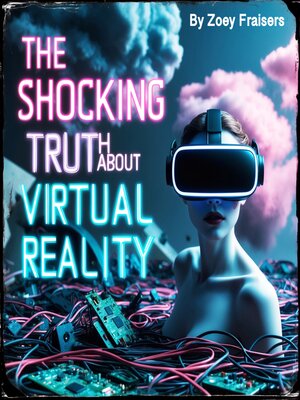
Sign up to save your library
With an OverDrive account, you can save your favorite libraries for at-a-glance information about availability. Find out more about OverDrive accounts.
Find this title in Libby, the library reading app by OverDrive.



Search for a digital library with this title
Title found at these libraries:
| Library Name | Distance |
|---|---|
| Loading... |
Virtual reality (VR) has long been a concept of science fiction, but today, it is a rapidly evolving technology shaping industries, entertainment, and even human interactions. From its early beginnings as a theoretical concept to the sophisticated headsets and immersive environments of today, VR has transformed from a novelty into a powerful tool that influences the way people work, learn, and socialize. While the promise of virtual worlds seems limitless, there are also significant concerns about its long-term effects on society, privacy, and even human psychology.
The origins of VR date back further than most people realize. The idea of creating artificial environments that simulate reality can be traced back to the early 20th century. Flight simulators in the 1920s provided the first taste of what would later become VR training programs. In the 1960s, innovators such as Ivan Sutherland and Morton Heilig developed early prototypes of head-mounted displays and immersive cinema experiences. However, technological limitations prevented these early experiments from reaching mainstream adoption. It wasn't until the late 20th and early 21st centuries that computing power, graphics capabilities, and internet connectivity made VR a viable and widely accessible technology.
Breakthroughs in VR hardware and software have enabled increasingly realistic and engaging experiences. High-resolution headsets, motion tracking, and artificial intelligence now allow users to step into digital environments that respond dynamically to their movements and actions. Industries ranging from gaming and entertainment to healthcare and education have embraced VR as a revolutionary tool. Doctors use VR to simulate surgeries, businesses conduct remote meetings in virtual spaces, and educators transport students to historical landmarks without ever leaving the classroom.







